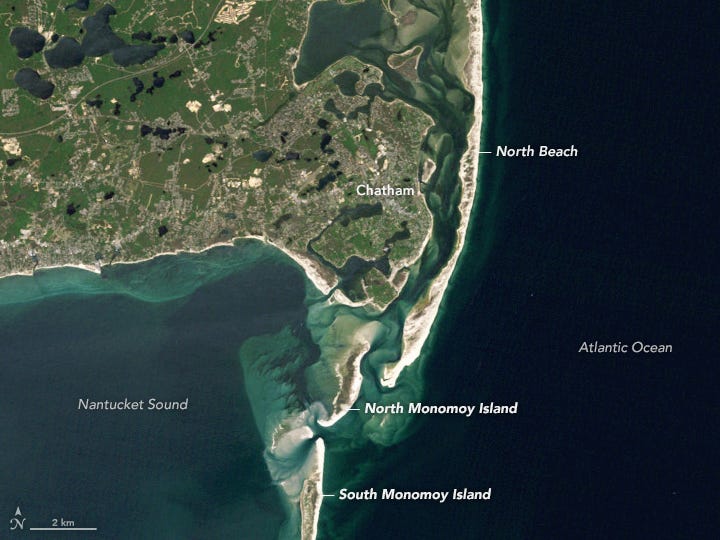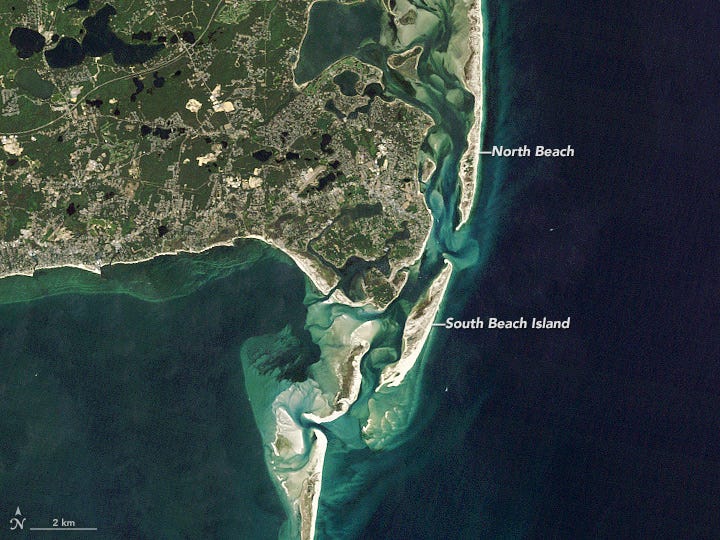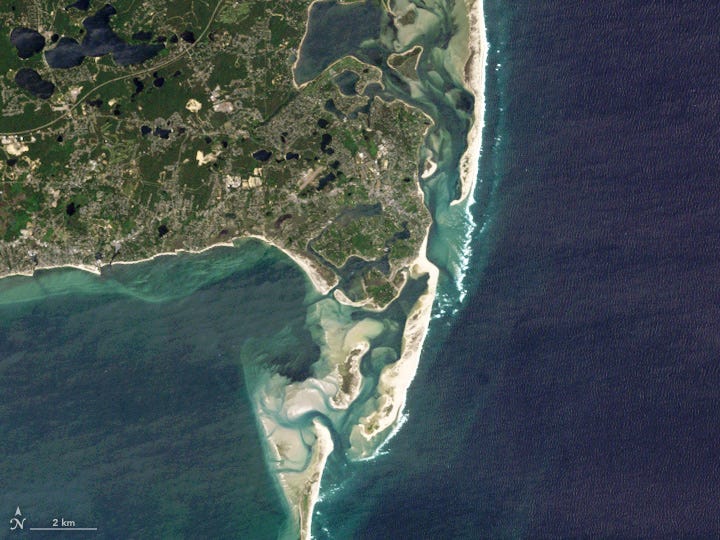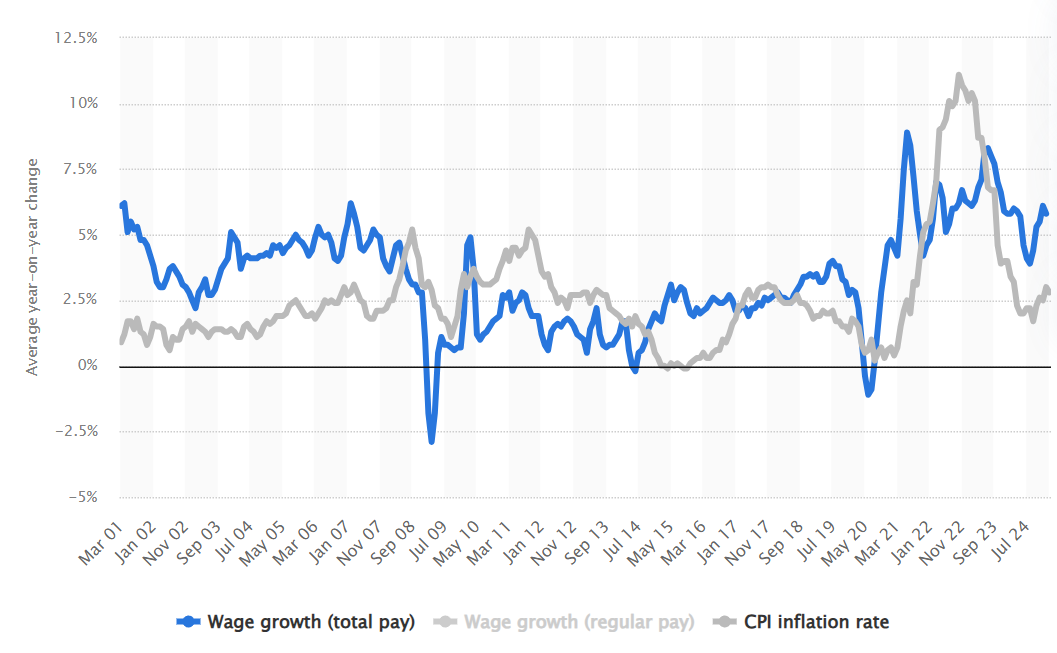1.1 The Inflation Trap - Eroding your money one wave at a time
The silent force eroding your wealth
Missed the start? Read Part 1 – The Money Trap to see why so many of us feel stuck, despite working hard and doing “all the right things.”
See the full escape map here
At the end of each post, I’ve included a “Looking Ahead” section — a small step or idea you can try or think through now to begin shifting your mindset, and your money.
Erosion: The Quiet Force that Changes Everything
As a maths teacher, my favourite subject at school was obvious.
But surprisingly, geography came a close second.
I was fascinated by how the physical world worked. Tectonic plates shifting beneath our feet causing huge earthquakes, hurricanes tearing across oceans, volcanic eruptions disrupting entire landscapes. These gigantic, cataclysmic forces reshaping the planet.
But one of the most quietly destructive?
Coastal erosion.
It lacks the drama of an earthquake or the spectacle of a volcano. It’s subtle. Gradual. Easy to ignore.
Waves travel vast distances across oceans. When they reach the coastline, they break — sometimes crashing, sometimes gently lapping. But each one carries away with it tiny amounts of sand, grit and rock. And with every wave, a little more of the coast disappears.
At first, the change is imperceptible. You stand in the surf, the warm water washing gently over your feet. Nothing seems to be happening.
But the waves keep coming. Again. And again. And again. Each one removes a grain of rock, a bit of beach, a few more centimetres of safety.
Over years, the impact is dramatic. Take a look at this series of timelapse photographs of Cape Cod, Florida:
1984 - A long continuous coastline
1987 - The north beach split in two
1995 - An entire section gone
No single wave caused the damage. But all of them together decimated the coastline.
How Inflation Erodes Your Wealth
Inflation works exactly the same way.
Every year, the price of the things you buy goes up. Sometimes quickly, sometimes slowly — but always relentlessly.
The winds of economic forces — from wages and energy prices to global supply chains and central banks — push and pull the waves of inflation back and forth. Some years feel calm. Others bring a storm. But the erosion never truly stops.
It doesn’t feel dramatic. You don’t get an alert when it happens. But over time, inflation erodes the value of your money in just the same way those waves eat away at the beach.
So, how bad is it?
For most of the last 100 years, UK inflation has averaged around 2.5%–3% per year. It doesn’t sound like much. But over time, this rate can be quietly destructive.
The Maths You Wish You'd Learned About Inflation
Here’s a simple technique from GCSE (or SAT) maths:
If I want to increase something by:
3% → multiply by 1.03
14% → multiply by 1.14
27.8% → you guessed it: 1.278
Bet you wish I’d been your maths teacher.
So, if a can of Coke costs £1 today, and inflation is 3%, next year it will cost
Fine. No big deal. But let’s look at what happens over five years
So now it’s 16% more expensive. Not 15%. Why? Because the increase compounds. You’re paying 3% more this year… and then 3% more next year on top of that.
That’s how inflation quietly eats away at your buying power.
The £1 you had five years ago is no longer able to buy that coke.
That £1 coin has become less valuable.
Inflation in Action: Watching Your Money Shrink
Look at how prices have changed in the UK between 2010 and 2025.23
Small, seemingly harmless price rises don’t just add up — they accelerate. £12,240 for school fees felt expensive. £28,000 feels impossible. And over half a million pounds for an average house in London? It feels like there’s no way to keep up with these relentless, runaway costs, whilst your money is standing still, not able to buy the same things it used to be able to.
A Personal Shock
In 1999, my parents did a renovation project on our home. The cost? £60,000.
in 2023, I considered doing a similar project on my home. After months of painstaking research into prices, I budgeted for £150,000. Then the first quotes started coming in.
£230,000. For a project which was actually smaller in scope. Not something luxurious, just a normal renovation. My heart sank in the realisation that we might not be able to achieve the same goals as our parents. I hadn’t been careless. The goalposts had simply moved.
That’s the slow, destructive power of inflation.
The Inflation Trap
Inflation hits you in two ways:
If your wages/salary rises by less than inflation every year, then you are effectually being given a pay cut each year.
If your money is sitting in cash — in a bank account earning less than inflation — whilst the number may go up each year as it earns interest, the value is quietly falling.
That’s the trap.
You feel like you’re being safe. Sensible. Responsible. But your money is shrinking in real terms, wasting away.
£10,000 in cash 10 years ago is only worth around £7,500 in real world buying power today.
That’s the cost of standing still.
Wages and Inflation
This graph shows the rise of prices (CPI inflation rate, grey) compared to changes in pay (wage growth, blue).
When the grey line rises above the blue, prices are rising faster than wages.
Even if your payslip shows a bigger number, it buys you less.
This is how inflation erodes our earnings — quietly, constantly.
Like the waves along the Cape Cod coast.
Sometimes crashing. Sometimes gently lapping. But always wearing it down.
Why inflation feels so sneaky
It doesn’t arrive all at once
It doesn’t hurt like a crash
It just quietly dulls the power of your money
And over time, that erosion compounds. Just like Cape Cod. One wave at a time. One grain of value, gone. Until one day, you look back — and realise how much has disappeared.
The Challenge of Inflation
This is the key challenge:
Your wealth needs to grow faster than inflation.
Because if it doesn’t, no matter how hard you work or how carefully you save — you’ll feel like you’re treading water, or worse, slowly sinking.
But before we talk about how to grow wealth and beat inflation, we need to look at another trap. One that eats your money before it even reaches your bank account.
Recap
Inflation silently erodes your buying power.
Your money loses value even when it “sits safely.”
Beating inflation means investing in assets that grow faster.
Cash is for short-term safety, not long-term growth.
Up next: Tax - The Trap That Hits You Twice
how your income disappears before payday
See the Map of where we are going: Click Here
Looking Ahead
Cash - (Huh!) What is it good for? Absolutely Something
Cash is your coastal defence against the relentless wave of inflation.
Any money that you need for expenses in the next 2-5 years is unlikely to drop dramatically in value in the short term in cash (savings). Think
Deposit for a house
School Fees
Emergency Fund
If your account beats inflation with its interest rate — great. If it’s a cash ISA — even better. That’s tax-free interest, and a nice shield from the tax trap too.
However it’s not good for growing wealth in the long term. That’s where the next trap tightens its grip — even before your money reaches your bank account.
Cash is not your escape from the money trap, it’s just your protection, to help you tread water. For true escape, we need something else.
What are your views on the inflation trap?
Do you notice when you prices rise faster than pay?
What are you currently doing to relieve the pain?
Comment below - I read every one and even a single sentence helps — I’d love to hear what you think.
Enjoyed this?
Follow me on Instagram: rohit.trivedi.39 and LinkedIn: rohit.trivedi
Tools & Resources
Explore all tools here: Tools & Resources — calculators, mappers, and guides to help you escape the money trap.”
https://earthobservatory.nasa.gov/world-of-change/CapeCod
https://www.bankofengland.co.uk/explainers/how-have-prices-changed-over-time
https://www.yourmoney.com/household-bills/private-school-fees-rise-20-per-cent-since-2010





